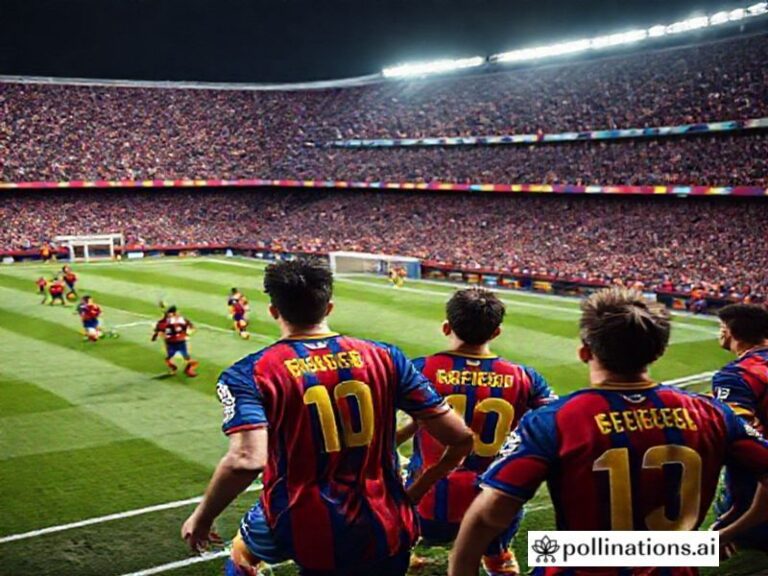Zamir White: The Global Trade Route Hidden in an NFL Jersey
Zamir White and the Global Supply Chain of Human Speed
By Our Man in the Cheap Seats, Geneva
GENEVA—On the surface, Zamir White is merely the latest American running back to bolt from the Las Vegas Raiders’ backfield like a man fleeing his student-loan officer. Yet in the grand bazaar of 21st-century talent arbitrage, his story is a miniature trade route that begins in rural Georgia, pauses in the fluorescent purgatory of NFL draft war rooms, and ends on Sunday feeds from Tierra del Fuego to Ulaanbaatar. One 91-yard touchdown dash in Munich last November was enough to remind every Bundesliga-loving, data-plan-happy viewer that the United States still exports something other than inflation and TikTok trends: the raw commodity of human velocity.
White’s nickname—“Zeus”—comes pre-loaded with the sort of mythic branding that travels better than a diplomatic passport. From Lagos living rooms to Seoul sports bars, the gods have always been good business. What’s new is the packaging. Every pirated stream, every NFL Game Pass trial cancelled after the free week, turns White’s legs into trans-continental cargo. The Raiders, whose fan base now stretches from the Black Hole to the Black Sea, understand this better than most. They’ve monetized dreadlocks and stiff-arms the way Swiss banks once monetized neutrality: quietly, lucratively, and with a nod to plausible deniability.
Of course, the global supply chain is cruel. White’s knees—twice reconstructed before he could legally rent a car—are the sweatshops of this metaphor, stitched together by orthopedic artisans whose work is inspected weekly by fantasy owners in Manila. When he plants that left foot and accelerates through the hole, a dozen surgeons from Zurich to Johannesburg lean closer to their 4K screens, muttering surgical obscenities in mutually unintelligible tongues. It’s the World Cup of ligaments, played one snap at a time.
Meanwhile, the betting apps—legal in 37 countries, wink-wink-legal in the rest—price his next carry like Brent crude futures. Kenyan punters who’ve never seen snow now hedge their shillings on whether Zeus hits 4.5 yards before contact. The ironies multiply faster than his yards after catch: an athlete once clocked at 23 miles per hour is now a decimal point in someone else’s offshore retirement plan.
But let us zoom out, as all self-respecting international correspondents must. White’s breakout coincides neatly with the global moment when every institution—governments, leagues, even the IOC—decided that “amateur” is just Latin for “unmonetized.” The Raiders, owned by a 007-villainesque American family that also dabbles in junk bonds and municipal extortion, happily sell “ZAMIR 35” jerseys stitched in Vietnam, shipped via Rotterdam, and modeled on Instagram by an influencer in Dubai who thinks third-and-long is a boutique cocktail.
And still, the kid himself remains polite, almost unnervingly so. Asked by a German reporter why he runs so hard, White replied, “Because I can.” The line ricocheted across continents like a Vladimir Putin missile that actually works. In those three words, a planet of overqualified Uber drivers and underemployed PhDs recognized the last pure transaction left: effort exchanged for applause, collateralized by pain.
Which brings us to the moral, if we must have one. Somewhere in a refugee camp outside Amman, a teenager streaming on a cracked phone sees Zamir White stiff-arm a linebacker into next week and thinks, “That could be me.” Statistically, it won’t be. But hope, like American football, is a brutal export: it requires an ever-expanding market of believers who ignore the fine print about concussions and career length.
So when White takes the field this autumn, remember you’re not just watching a running back. You’re watching globalization in shoulder pads, a living futures contract sprinting toward either a second contract or an orthopedic conference in Doha. Either way, the world will be watching—some on 80-inch OLEDs, others on buffering phones, all of us paying, in one currency or another, for the privilege of seeing how fast a man can run before the bill comes due.







